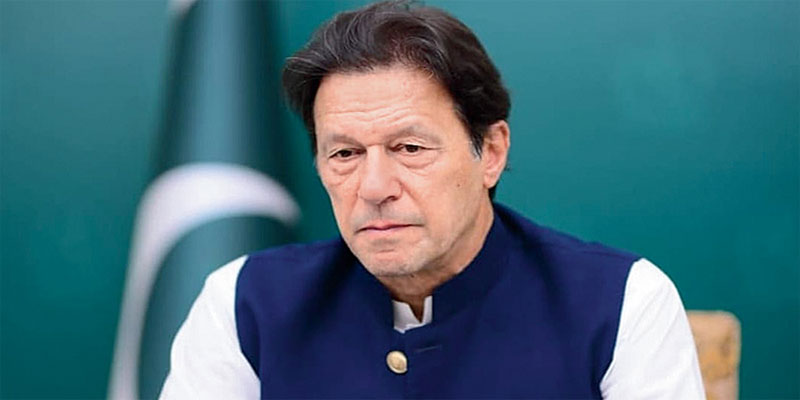Former Pakistan Prime Minister Imran Khan was found guilty of not disclosing information on gifts presented to Toshakhana, as well as the revenue received from the alleged sale of these gifts, amounting to as much as 140 million Pakistani rupees ($635,000). As a result, he has been sentenced to three years in prison in the Toshakhana case, effectively ending his chances of contesting in Pakistan’s upcoming national elections.

Former Pakistan Prime Minister Imran Khan was arrested on Saturday, August 5, from his residence in Zaman Park, Lahore. His arrest followed shortly after an Islamabad trial court declared him guilty of “corrupt practices” in the Toshakhana case.On Saturday, August 5, an Islamabad trial court convicted Pakistan Tehreek-e-Insaf (PTI) chief and former Pakistan PM Imran Khan in the Toshakhana case. The Toshakhana reference case has stirred controversy after the Election Commission of Pakistan (ECP) directed the removal of Imran Khan as a member of Pakistan’s National Assembly and initiated criminal proceedings against the former Prime Minister. But what exactly is the Toshakhana, and why has this case caused trouble for the once beloved cricketer-turned-politician?
What Is Toshakhana?
Toshakhana is a department established in 1974 that stores gifts and other valuable items received by public officials in Pakistan. According to its rules, officials are required to report any gifts or valuable items they receive to the Cabinet Division. However, the president and prime minister are exempt from this requirement and can keep gifts valued at less than 30,000 Pakistani Rupees (PKR). Additionally, the prime ministers can retain expensive gifts from Toshakhana by paying a certain percentage of their assessed value as determined by the government.
Why Were Toshakhana Details Sought?
The controversy surrounding Toshakhana details emerged when Imran Khan, who assumed office in 2018, refused to disclose information about the numerous gifts he received during his tenure in response to a journalist’s request under Pakistan’s Right To Information (RTI) law. The request was denied by the PTI-controlled central government, citing concerns that revealing such information could negatively impact relations with other countries.
Subsequently, the journalist filed a complaint with the Federal Information Commission after the Cabinet Division refused to disclose Imran Khan’s Toshakhana details. The commission directed the Cabinet Division to provide the information in accordance with the RTI. However, the Imran Khan-led government failed to comply with the commission’s directive, leading the requesting party to approach the high court to enforce the Federal Information Commission’s decision.
In April 2022, the Islamabad High Court (IHC) ordered the government to disclose the information. However, before the process could be initiated, the Pakistan Muslim League-Nawaz (PML-N) took over power from the Imran Khan administration.
Toshakhana Reference Case
The Toshakhana Reference Case came into focus amid a political shift in Pakistan when details of Imran Khan’s actions regarding Toshakhana were leaked to the media, as reported by Pakistan daily Dawn.
On August 4, Members of the National Assembly (MNA) from the Pakistan Democratic Movement (PDM), a part of the new ruling alliance of the PML-N government in Pakistan, submitted a reference to the Speaker of the National Assembly. The reference sought the disqualification of the ousted Prime Minister from membership in the assembly.
The reference alleged that the prime minister failed to disclose the income earned from the sale of gifts in his statement of assets and liabilities, which all legislators are required to submit annually to the Election Commission of Pakistan (ECP).
Imran Khan’s Toshakhana Details Made Public By ECP
The Election Commission of Pakistan (ECP) made Imran Khan’s Toshakhana details public, revealing that despite increasing the retention amount from 20% to 50% of the assessed value during his tenure, Khan retained some of the most expensive gifts at a rate of 20%. Consequently, the average retention amount paid by Khan on all gifts over a period of about three years was just 27%, according to Dawn citing the ECP.
Read Also:PTI Candidates For Election 2024 Check Online
According to ECP estimates, Khan made a profit of PKR 104.78 million from the gifts he retained and sold. The ECP also stated that Khan followed the procedure for accepting and disposing of gifts from Toshakhana. However, the ECP’s decision to expel Khan was based on a reference from lawmakers, as the PTI chief had “intentionally and deliberately” violated the laws.